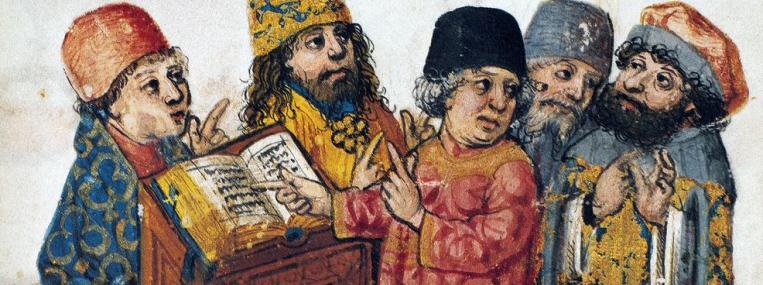
Medieval scholars discussing the meaning of a biblical passage
Midrash is a mode of rabbinic biblical exegesis that goes back all the way to antiquity and the early Middle Ages. The Sages of old were sensitive readers of Bible and alert to unusual words, expressions and phrases. They were also aware that there are passages in the Bible that seem out of context or even incomprehensible. Since they believed that the First five books book, the Torah or Pentateuch in Greek, was delivered word for word by God to Moses, a means of working out these textual difficulties needed to be devised. This was true also for difficulties with the content of many biblical narratives. For example, the biblical text in telling the story of a hero such as Jacob, Joseph, or King David, gave us depictions which included many of their faults. Since these figures are biblical heroes and were understood to be role models for future generations, the rabbis interpreted their stories in a way that were less disturbing and critical; their faults, were smoothed over. Such counter-readings were sometimes in contradiction to the plain meaning of the text. This rabbinic approach to interpreting the Hebrew Bible is called Midrash. It attempted to find meaning in difficult biblical passages which are strangely worded and perplexing and with depictions of biblical figures that are not completely positive.